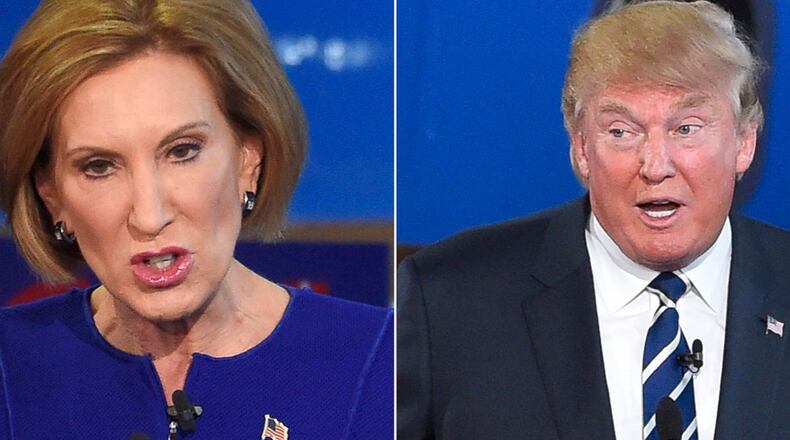After watching three hours of mind-numbing debate last night, my two big takeaways would be:
1.) Carly Fiorina was almost flawless. Her simple response to Trump's "face" insult was spot on, and I'm sure it struck home with a lot of people, men and women alike. She showed the capacity to absorb lots of information, synthesize and own it and then present it back to listeners in succinct, cogent language. Put another way, she's willing to do her homework, which is more than can be said for some of her colleagues on that stage last night.
This was Fiorini's first showing among the 11 at the "adults' table." I'd say her performance pushed her into the top five or six. If she can build an organization and raise the money -- both of which ought to be strengths, given her corporate background -- she might be able to become more than that. I've always said that non-politicians underestimate how hard it is to play the game at the national level; she may prove to be the exception.
2.) Donald Trump is in an awkward place, and it shows. He's just not comfortable. Over the last week or two, you could see it begin to dawn on him that he actually has a chance to win the GOP nomination for president of the United States. It is within his grasp, or so he now thinks. And once that thought hits home with a candidate, it changes everything. (The same thing happened to Howard Dean in 2004, and the realization ruined him.)
Until now, Trump has had nothing to lose. He could be free-wheeling and aggressive, and the crowds loved him for it. Now, in his own mind at least, he does have something to lose. He has the White House to lose. As a result, you can see him trying to become more cautious, more professional. He's actually trying to sound nice, and is toning down the irresponsible rhetoric a notch or three. You could also hear that realization seep into his speech in Dallas, when he basically begged the crowd for its permission to start taking big campaign money to fund the ads that a true campaign will require. (They said no).
The problem is that as Trump tries to make that transition, against character, he inevitably becomes more like other politicians. He begins to hedge, to talk about nuance. The brash authenticity disappears. How do you keep that maverick, off-the-cuff approach that made you a phenomenon while also protecting a big lead in the polls that can disappear as quickly as it arrived?
He's searching for that sweet spot, and in truth it may not exist.
About the Author
The Latest
Featured



